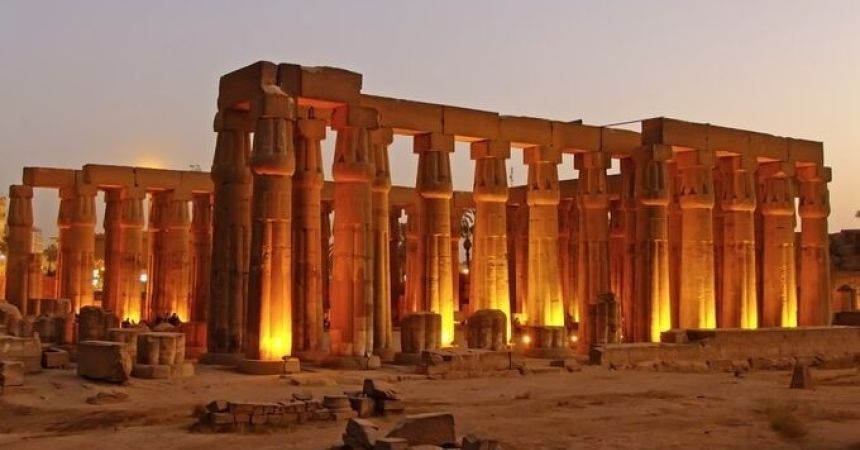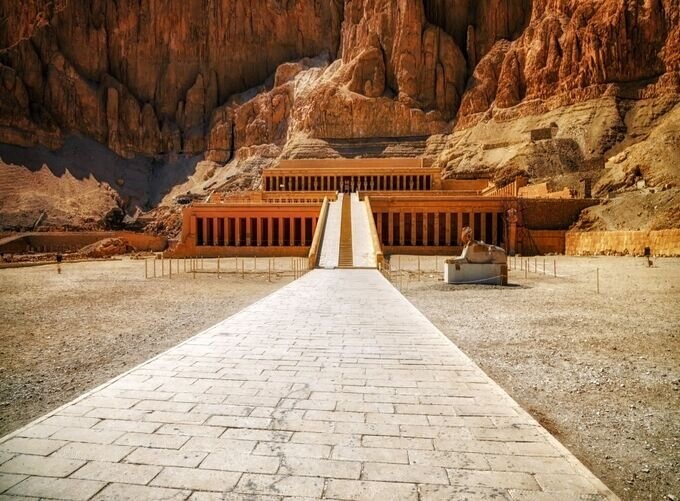
The Best Time to Visit Egypt
Egypt, a land of ancient wonders, captivating landscapes, and rich cultural heritage, draws millions of visitors each year. However, understanding the best time to visit is essential for maximizing your experience, whether you're exploring the iconic Pyramids of Giza, sailing the Nile River, or lounging on the shores of the Red Sea. This comprehensive guide breaks down each season in Egypt, highlighting the weather, events, and activities to help you plan your perfect trip to Egypt and Greece.
Overview of Egypt’s Climate
Desert Climate
Egypt experiences a predominantly desert climate characterized by hot summers and mild winters. The country has two main climatic regions:
- Nile Valley and Delta: This area, including Cairo and Luxor, has hot summers with temperatures often exceeding 40°C (104°F) and mild winters with average temperatures ranging from 10°C to 20°C (50°F to 68°F).
- Coastal Areas: The Mediterranean coast, including Alexandria, enjoys a more moderate climate with cooler temperatures and more humidity, especially in summer.
Rainfall
Rainfall is minimal throughout Egypt, with most precipitation occurring during winter months. The coastal regions may experience occasional showers, but the interior deserts remain largely dry.
Season-by-Season Breakdown
Spring (March to May)
Weather: Spring is one of the best times to visit Egypt. Temperatures are warm but not excessively hot, averaging between 20°C to 30°C (68°F to 86°F). This season is characterized by sunny days and cooler evenings.
Events:
- Sham El Nessim: Celebrated in April, this ancient spring festival marks the arrival of spring and is characterized by picnics, outdoor gatherings, and traditional foods. It’s a great time to experience local culture.
Activities:
- Explore Cairo: Visit the Egyptian Museum, Giza Pyramids, and the bustling Khan El Khalili bazaar without the intense summer heat.
- Nile Cruises: Take a cruise along the Nile to enjoy the stunning scenery and visit temples in Luxor and Aswan.
Pros:
- Ideal temperatures for outdoor exploration.
- Fewer crowds than the peak tourist season.
Cons:
- Popular sites may still attract visitors, especially during holidays.
Summer (June to August)
Weather: Summer in Egypt can be extremely hot, especially in the interior regions. Temperatures often exceed 40°C (104°F), with some areas reaching up to 50°C (122°F). The coastal areas are milder due to the Mediterranean breeze but can still be quite warm.
Events:
- Eid al-Adha: This important Islamic holiday usually falls in July or August, depending on the lunar calendar. The celebrations can lead to vibrant cultural experiences, but also larger crowds in major cities.
Activities:
- Red Sea Resorts: Head to the coastal cities of Sharm El Sheikh, Dahab, or Hurghada, where you can enjoy water sports, diving, and relaxing on the beach. The heat is more bearable by the sea.
- Evening Tours: Plan your visits to major sites like the Pyramids and Luxor Temple in the early morning or late afternoon to avoid the worst of the heat.
Pros:
- Fewer tourists at major historical sites in the interior.
- Great deals on accommodations in many tourist areas.
Cons:
- Extremely high temperatures can limit outdoor activities.
- Some sites may have reduced hours during peak heat.
Fall (September to November)
Weather: Fall is another excellent time to visit Egypt, with temperatures gradually cooling from the extreme summer heat. In September, temperatures can still be high, but by October and November, averages drop to a comfortable 20°C to 30°C (68°F to 86°F).
Events:
- Cairo International Film Festival: Held in November, this festival showcases international cinema and is an excellent opportunity for film enthusiasts to engage with local culture.
Activities:
- Visit Historical Sites: Explore the Valley of the Kings, Karnak Temple, and other sites with pleasant weather conditions.
- Cultural Experiences: Participate in local festivals and events happening across the country during this vibrant season.

Pros:
- Comfortable weather for exploring both cities and desert sites.
- A variety of cultural events and festivals.
Cons:
- Increased tourism as the season is popular among travelers.
Winter (December to February)
Weather: Winter in Egypt is mild, with daytime temperatures averaging 14°C to 22°C (57°F to 72°F). Nights can be quite cool, especially in the desert, so packing layers is essential.
Events:
- Christmas and New Year: Many tourists visit Egypt during the holiday season, leading to special events and celebrations, especially in major cities.
Activities:
- Cultural Tours: This season is perfect for exploring the major historical sites without the scorching heat.
- Desert Adventures: Participate in desert safaris and camel treks in comfortable temperatures.
Pros:
- Ideal conditions for exploring outdoor sites and attractions.
- Great time for cultural and historical tours.
Cons:
- Higher tourist traffic, particularly during the holidays.
- Some desert areas may be less accessible due to cooler temperatures.
Regional Variations in Climate
Coastal Regions
- Alexandria and the North Coast: These areas experience milder winters and cooler summers, making them a pleasant destination year-round. The Mediterranean climate means that summers are hot, but less extreme compared to the interior.
Southern Egypt
- Aswan and Luxor: Southern Egypt can be extremely hot during the summer months. While fall and spring are the best times to visit, winter is also suitable, especially for those looking to escape the cold in other parts of the world.
Sinai Peninsula
- Sharm El Sheikh and Dahab: The Red Sea resorts have a more temperate climate, with warm winters and hot summers. These areas are popular year-round, particularly for diving and water sports.
Tips for Visiting Egypt
The desert climate can lead to dehydration, especially during hotter months. Always carry a reusable water bottle and drink plenty of fluids, particularly when exploring outdoor sites.
Dress Comfortably
Wear lightweight, breathable clothing, especially in the summer. Modest attire is advisable for visiting religious sites, while comfortable shoes are essential for walking and exploring ancient ruins.
Respect Local Customs
When visiting mosques and temples, be respectful of local customs. Remove your shoes when entering religious sites, and observe dress codes.
Plan Your Itinerary
Research and plan your Egypt Travel itinerary in advance to make the most of your time in Egypt. Consider the travel times between cities and the opening hours of various sites.
Travel Insurance
Consider purchasing travel insurance that covers health emergencies, trip cancellations, and lost belongings for peace of mind during your trip.
Plan Your Family Holiday in Egypt Today
Choosing the best time to visit Egypt depends on your preferences for weather, crowds, and activities. Spring and fall offer the most comfortable temperatures and fewer crowds, making them ideal for exploring the country's rich history. Summer can be intense, but heading to the Red Sea coast provides an escape from the heat, while winter offers mild conditions perfect for sightseeing.



